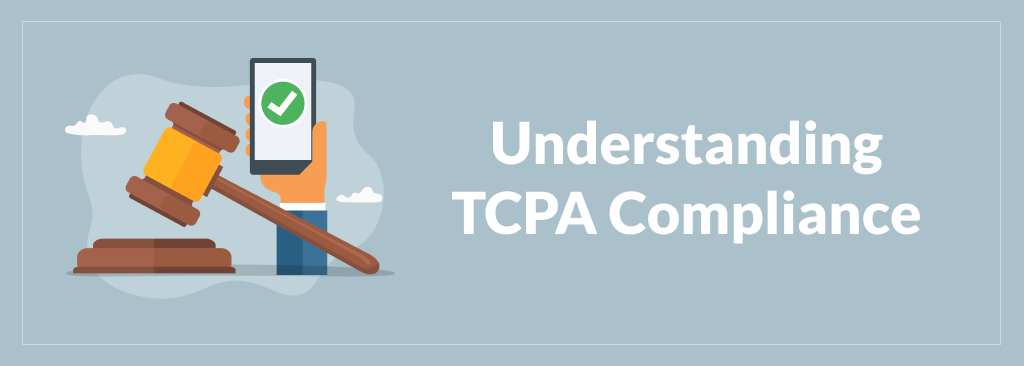Understanding the Impact of TCPA Regulations on Contact Center Operations
Contact centers must rely on compliance and regulations to keep customers safe and protected. The Telephone Consumer Protection Act (TCPA) is one of the most significant regulations contact centers must adhere to.
Enacted in 1991 and amended multiple times since then, the TCPA regulates telemarketing calls, auto-dialed calls, prerecorded calls, text messages and unsolicited faxes. But what does TCPA compliance mean for contact center operations, and how does it impact day-to-day activities? Let’s dive into this complex regulatory landscape to better understand its implications.
Understanding TCPA regulations
At its core, TCPA compliance is about protecting consumers from unwanted communications while allowing legitimate businesses to engage with their customers lawfully. Compliance with TCPA regulations requires contact centers to obtain prior express written consent before making telemarketing calls or sending automated messages to consumers’ telephone numbers.
Additionally, the TCPA mandates specific requirements for maintaining and honoring Do Not Call lists, ensuring that consumers who opt out of receiving communications are not contacted. For a more complete list of regulations mandated under the TCPA, check out TCN’s free resource.
The TCPA’s impact on contact center operations
The TCPA plays a significant role in shaping how contact centers operate, such as:
- Compliance costs and resource allocation
Achieving and maintaining TCPA compliance requires significant resource investment. Contact center managers must implement robust compliance management systems to help them stay compliant without taking up too much of their time.
Software solutions that ensure accurate recordkeeping and adherence to opt-out requests prove extremely helpful in consent management for contact centers. Moreover, staff training programs are essential in educating agents about TCPA regulations and best practices for compliant communications. - Operational efficiency and customer experience
TCPA compliance regulations often necessitate changes to contact center workflows and processes. For instance, obtaining explicit consent for communications may introduce additional steps in the customer onboarding or contact strategy.
While these changes may initially impact operational efficiency, they contribute to fostering a more transparent and customer-centric approach. By respecting consumers’ preferences and privacy rights, contact centers can enhance trust and satisfaction, leading to stronger customer relationships in the long run. - Risk management and legal considerations
Non-compliance with TCPA regulations can have severe consequences, including costly fines, legal disputes and reputational damage. Contact centers must proactively manage compliance risks by staying abreast of regulatory updates, conducting regular audits and implementing robust compliance monitoring mechanisms.
Additionally, maintaining detailed records of consent and opt-out requests is critical for demonstrating compliance in the event of regulatory inquiries or legal challenges.
Contact center solutions for TCPA compliance
Facilitating TCPA compliance and mitigating compliance risks requires advanced technology. Contact center solutions like TCN’s Operator offer features specifically designed to support compliance efforts, including:
- Consent management tools: Automate the collection and documentation of consumer consent across various communication channels, ensuring compliance with TCPA regulations.
- Do Not Call List integration: Seamlessly integrate national and internal Do Not Call lists into contact center systems to prevent unauthorized communications with opted-out consumers, even if those numbers are reassigned.
- Call recording and archiving: Capture and archive all communications for compliance purposes, facilitating audit trails and dispute resolution.
- Real-time compliance monitoring: Monitor outbound communications in real time to detect and prevent potential TCPA violations before they occur, minimizing compliance risks.
- Dynamic scripting and call routing: Customize call scripts and routing logic based on consumer preferences and consent status, ensuring compliant interactions at every touchpoint.
By leveraging these technological capabilities, contact centers can streamline compliance efforts, minimize manual errors and focus on delivering exceptional customer experiences – all while adhering to TCPA regulations.
Ensuring TCPA compliance in your contact center operations
TCPA compliance is not just a legal obligation — it’s a commitment to building stronger, more meaningful relationships with consumers while safeguarding their rights and privacy in an increasingly interconnected world.
While achieving and maintaining compliance can be challenging, it also presents opportunities for contact centers to differentiate themselves through transparency, trust and customer-centricity.
By investing in technology like TCN, contact centers can successfully navigate the complexities of TCPA regulations while delivering value and customer satisfaction. For a deeper dive into TCPA compliance and best practices for contact center operations, explore TCN’s comprehensive guide to TCPA compliance.
